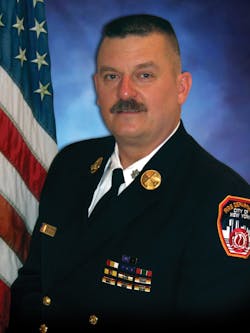During my 33-year career with the FDNY, I was fortunate enough to have pursued promotion and subsequently bounced around the job for much of my career. This bouncing around (or “covering,” as newly promoted officers call it) is like being a substitute teacher. Each day or night shift, sometimes a few days in a row and sometimes even a week or two, you are assigned to work a shift in a different company. Eventually, after a few months or even a few years of covering, most lieutenants, captains and battalion chiefs land a regular assigned spot in a company where they settle in.
Imagine you work as a firefighter for seven or eight years in an engine company and get promoted to lieutenant. Soon you are assigned to another engine in another division far, far away. You like the company, you like the firefighters, and the commute isn’t too bad, so you stay. Some lieutenants stay for four or five years and then get promoted to captain; others stay for 10 years or longer; and some lieutenants stay for the remainder of their career (aka the “come and stay” crew).
The bosses who stay forever are great. They become senior officers and pillars of the unit. They have a stake in the organization. They know all the firefighters, their spouses, and the company policies and traditions. They attend every company party, reunion, picnic and promotion ceremony. But what about the officers who just stay a few years? Some of them “come and go,” meaning they settle in, study, take a test and get promoted. It doesn’t happen quite that quickly, but it can if you hit the tests right and score high enough.
After moving up the ladder, do they ever come back to visit or attend company functions? Do they attend the promotion ceremony of their favorite firefighters who make lieutenant? Obviously everyone has places to go and people to meet, but I always loved to see one of my companies’ former firefighters, lieutenants or captains walk into the holiday party at a local venue.
The firehouse family is a unique animal. There are a few different groups of people who make it up. Some firefighters are assigned right out of probie school and stay until they retire. Thank goodness for them! Those are the folks who eventually evolve into senior firefighters and help develop, maintain and modify company policy, habits and traditions. There were senior firefighters where I served as a captain, and I remember how helpful they were to me in managing and supervising operations there.
Then you have the group of firefighters who desire to become officers. As stated, they follow the process and eventually get promoted. But many of them do not “go.” They don’t disappear, never to be seen again. They keep coming back. This is true for lieutenants who get promoted to captain and captains who get promoted to battalion chief. They keep coming back. They come back for the next promotion ceremony and tell their stories about the young firefighter who is getting promoted to lieutenant. Many of the current firefighters don’t know the stories because they weren’t even assigned there way back then. Then the former captain shows up for the firehouse picnic where they get reacquainted with their former teammates and introduced to some of the newer members who arrived after they left.
All of these folks mix it up and share stories about how things were in that company when they worked there. I’ve heard some of the older, more senior people come back and tell the newer or current members that they worked there when the company was “busy,” insinuating of course that they aren’t busy anymore. Others come back to share their account of now-famous company incidents or events that involve some of the members who still work there. These stories are often eye-opening tales that the newer firefighters love to hear about their fellow company members.
The point: Everyone is an important part of the company they work in. Whether you work somewhere for 5, 10 or 20 years, you are a unique ingredient. You probably know some stories, some origins of traditions, some off-color tales about the company and its members that nobody else can remember. If you want to preserve the firehouse family, “come and stay”!
About the Author
John J. Salka Jr.
Battalion Chief
JOHN J. SALKA JR., who is a Firehouse contributing editor, retired as a battalion chief with FDNY, serving as commander of the 18th battalion in the Bronx. Salka has instructed at several FDNY training programs, including the department’s Probationary Firefighters School, Captains Management Program and Battalion Chiefs Command Course. He conducts training programs at national and local conferences and has been recognized for his firefighter survival course, “Get Out Alive.” Salka co-authored the FDNY Engine Company Operations manual and wrote the book "First In, Last Out–Leadership Lessons From the New York Fire Department." He also operates Fire Command Training, which is a New York-based fire service training and consulting firm.

